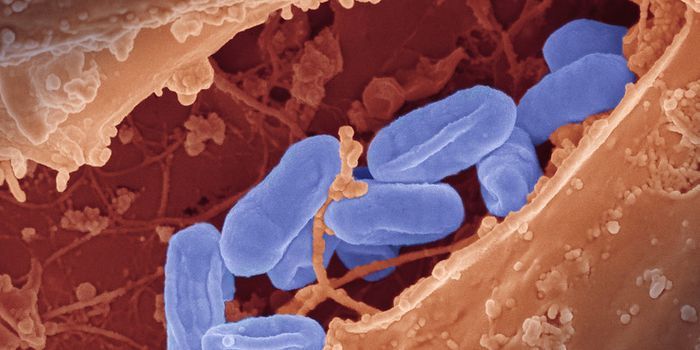Gut Bacteria may be Causing Brain Impairment in Sepsis Patients
After a serious illness or surgery, some people then have to face complications in the form of body or brain dysfunction. The causes of that brain impairment have been a mystery, but scientists have started to look at a connection between these problems and gut microbes. Reporting in the American Journal of Respiratory and Critical Care Medicine, researchers have suggested that gut bacteria may be to blame for brain dysfunction in sepsis patients.
Sepsis can lead to a variety of other health problems.
"Many will experience cognitive impairments or emotional difficulties that are equivalent to mild traumatic brain injury and can persist for months or years after their hospitalization," said lead author Benjamin Singer, M.D., Ph.D., an assistant professor of internal medicine at Michigan Medicine.
"We already know from previous studies that sepsis results in long-term brain dysfunction and that neuroinflammation plays a role in brain injury during the infection," continued Singer. "But we hypothesized that the brain injury is directly related to gut bacteria independently moving to the brain and perhaps triggering an immune response that leads to longer-term effects from the injury."
The relationship between the brain and sepsis had not been explored until this study, although others have suggested that sepsis might increase the risk of lung inflammation. The team used brains from deceased patients and mice to assess whether they contained gut bacteria.
"The traditional thing to do in a microbiology lab is: take a sample and try to grow bacteria from it in the lab under particular conditions and see what you get," Singer said. "We know, though, that there are many bacteria that are important in the gut microbiome but that don't grow in the traditional methods.
"We can take a sample and isolate the DNA from it and sequence the 16S rRNA gene. Then we can compare the sequences of those genes to a database of known bacteria and identify many more bacteria in the tissue, instead of relying on what grows in a culture."
Indeed, the scientists found that gut bacteria was present in mice five days after they recovered from sepsis. Those bacteria, which were gone fourteen days after the illness, have been linked to a marker of neuroinflammation, called S100A8. The same marker was found in human patients. The team also saw small differences between people who died of sepsis and those whose death had noninfectious causes.
"Anytime someone dies, bacteria grow out of control because the immune system is not keeping the bacteria in the body in check," Singer explained. "But we found that the bacteria we isolated from patients that died of sepsis were quite different from the run-of-the-mill bacteria that sit in the body after a person dies -- and did appear to be associated with neuroinflammation in the brain."
It seems that sepsis is causing gut bacteria to migrate to the brain, where it resides until a few weeks after the illness subsides; it is therefore highly likely that gut bacteria are related to the brain disorder seen in sepsis patients.
"The larger question raised by this study is: Is there anything we can do to intervene and change the consequences of critical illness for survivors?" Singer noted. "Results from the microbiome and lung inflammation study and this one suggest that one, there are bacteria that are directly involved in organ injury, and two, the bacteria that have disseminated to different organs during sepsis are not always the bacteria that the clinical laboratory identifies in the blood culture and that are the target of your antibiotic treatment."
This work may impact patient care and could influence future studies that assess whether gut bacteria might be useful in the clinic as a brain therapeutic.
"Giving patients oral antibiotics to remove those bacteria in the gut may potentially reduce long-term effects of critical illness," Singer concluded.
Sources: AAAS/Eurekalert! Via Michigan Medicine, American Journal of Respiratory and Critical Care Medicine









